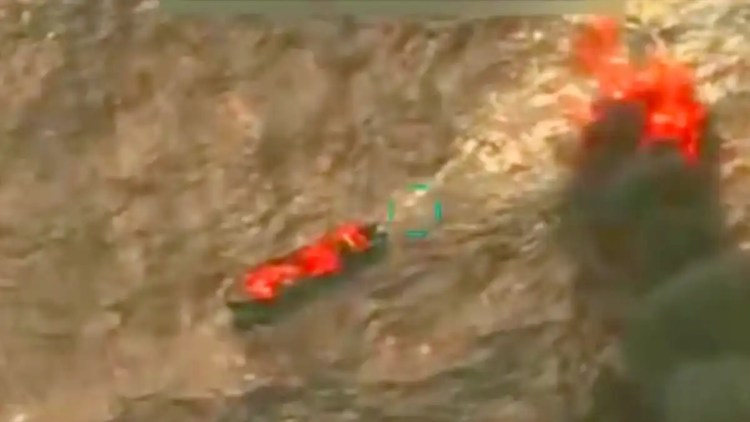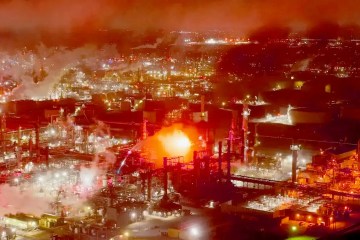Tensions between Washington and Caracas boiled over this week after Venezuelan officials reported spotting five U.S. warplanes buzzing dangerously close to their coastline. Officials in President Nicolás Maduro’s government decried the flyover as a brazen provocation, labeling it “a vulgarity” and direct assault on national sovereignty.

This aerial intrigue coincides with a massive U.S. naval buildup across the Caribbean. Trump administration dispatched an armada of warships framing the operation as a bold crackdown on drug trafficking routes feeding America’s opioid crisis.
Pentagon spokespeople insist the deployment targets smuggling networks not any sovereign nation.
Yet Maduro’s regime sees ulterior motives, accusing the U.S. of encircling Venezuela in a bid to destabilize the oil-rich South American power.
In a fiery White House briefing, President Donald Trump doubled down, proclaiming America locked in outright war against drug cartels. “These poison peddlers aren’t criminals—they’re enemy combatants waging war on our streets,” Trump declared, his voice echoing through packed press rooms. The rhetoric marks a sharp escalation from routine interdictions to full-spectrum conflict.
A leaked memo, obtained exclusively by ABC News and shared with Congress lays bare the administration’s legal maneuvering. It designates Mexican and Colombian cartels as “unlawful combatants”—a status historically reserved for terrorist outfits like al-Qaeda. This reclassification, aides say, greenlights lethal force without congressional approval, invoking post-9/11 authorizations.
Last month’s daring naval strikes underscore the shift. U.S. forces sank several speedboats laden with cocaine, killing at least a dozen suspected smugglers in the Pacific and Atlantic. Proponents hail the raids as decisive victories; critics decry them as extrajudicial executions. “No evidence links those vessels to cartels,” one anonymous State Department official whispered to reporters. “We’re firing first and asking questions later.”
Legal scholars sound alarms over the memo’s implications. “There’s zero domestic or international footing for the president to wield kill authority like this,” argued Maria Gonzalez, a Georgetown University law professor specializing in national security. “By dubbing this a non-international armed conflict, Trump unlocks wartime powers domestically. It invites abuse—targeting migrants, protesters, anyone labeled a threat.”
The Pentagon concedes traditional policing fell short against cartels’ arsenal of submarines, drones, and corrupt officials. “Law enforcement couldn’t keep pace,” a defense brief admits. Still, the memo stops short of tagging specific groups as foreign terrorist organizations, leaving room for broad interpretation. Human rights advocates warn this vagueness could ensnare innocents, from coastal fishermen to low-level mules.
Read more: Massive Explosion at Chevron El Segundo Refinery Shakes South Bay – Flames Contained, Workers Safe
Venezuela, already reeling from U.S. sanctions, views the naval presence as prelude to invasion. Foreign Minister Jorge Rodríguez thundered on state TV: “Imperialist gunboats won’t cow us. This aggression demands hemispheric solidarity.” Regional allies like Cuba and Bolivia echoed calls for UN intervention, while Brazil and Colombia stayed mum, wary of entanglement.




